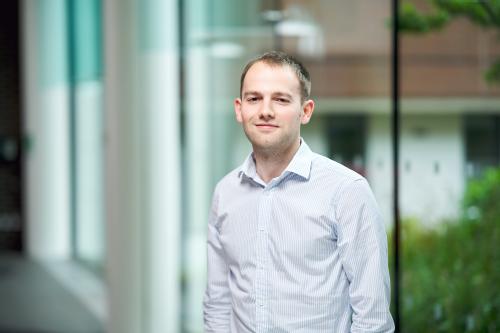Computer Science News
Prof. Nasir Rajpoot awarded funding by Cancer Research UK to use machine learning to improve the early detection of oral cancer
Cancer Research UK is funding a study to examine the use of machine learning to assist pathologists and improve the early detection of oral cancer.
We are very excited to work on this project with Dr Khurram and his team at Sheffield. Early detection of cancer is a key focus area of research in our lab and this award by CRUK adds to the portfolio of research at the TIA lab on early detection of cancer.
The pilot project will pave the way towards the development of a tool that can help identify pre-malignant changes in oral dysplasia, crucial for the early detection of oral cancer. Successful completion of this project carries significant potential for saving lives and improving patient healthcare provision. -- Professor Nasir Rajpoot
The research is led by Dr Ali Khurram at the University of Sheffield with Professor Nasir Rajpoot from the University of Warwick as the co-Principal Investigator. Other co-investigators and collaborators include Professor Hisham Mehanna and Dr Paul Navkivell from the University of Birmingham and Dr Jacqueline James from Queen’s University Belfast.
WM5G funding awarded to Prof. Hakan Ferhatosmanoglu on machine learning based spatio-temporal forecasting
Warwick's Department of Computer Science has been awarded a new research grant to develop a machine learning solution for dynamic forecasting of available capacity on road networks. The developed software is planned to be integrated within the TfWM's Regional Transport Coordination Centre for adaptive route planning and traffic management mitigation against disruptions, incidents and roadworks.
The “5G Enabled Dynamic Network Capacity Manager” project is in collaboration with commercial partners, Blacc, Immense, one.network, and O2. The team has won the WM5G’s transport competition to leverage 5G networks for near real-time AI based modelling.
Prof. Hakan Ferhatosmanoglu is leading the development of the scalable ML solution to forecast residual capacities in a dynamic spatio-temporal graph. The solution is designed to benefit from high-granular and low-latency data feeds from 5G cellular and sensor data enabling congestion to be accurately monitored, modelled, and predicted.
Adam Shephard joins the TIA lab

Adam Shephard has just joined the department as a Research Fellow and is currently working in the Tissue Image Analytics (TIA) Lab on the ANTICIPATE project funded by Cancer Research UK. He has recently submitted his thesis on the application of deep learning to paediatric MRI at Aston University, under the supervision of Prof. Amanda Wood and Dr. Jan Novak. His role in the ANTICIPATE project will be concerned with the development and application of deep learning techniques to digitized histology slides to aid in the more efficient grading of head and neck tumours, to ultimately provide more accurate patient prognoses.
EPSRC funding success for Dr. Ramanujan Sridharan
 We are delighted to report that Dr Ramanujan SridharanLink opens in a new window from the Theory and Foundations (FoCS)Link opens in a new window research theme at the Computer Science Department has received a prestigious EPSRC New Investigator Award. The approximately £264K project titled "New frontiers in Parameterizing Away From Triviality” aims to develop novel notions of graph edit distance and investigate their connections to efficient solvability of computationally hard problems.
We are delighted to report that Dr Ramanujan SridharanLink opens in a new window from the Theory and Foundations (FoCS)Link opens in a new window research theme at the Computer Science Department has received a prestigious EPSRC New Investigator Award. The approximately £264K project titled "New frontiers in Parameterizing Away From Triviality” aims to develop novel notions of graph edit distance and investigate their connections to efficient solvability of computationally hard problems.the proposal identifies research questions that are novel, has the potential to have a broader impact both within and outside academia and it is an exciting project that will break new ground.
PETRAS SRF award to Dr Arshad Jhumka to investigate trust in IoT systems
Dr Arshad Jhumka from the department’s Artificial Intelligence research theme has been awarded a grant as PI, under the PETRAS SRF programme, to develop and deploy a trusted edge-based Internet of Things (IoT) network. IoT networks are expected to be deployed as solutions to problems in a wide variety of contexts, from non-critical applications such as smart city monitoring to providing support to emergency services such as critical communications. As IoT devices are resource constrained, execution of resource-hungry applications will be offloaded to edge networks for quick response. Such an infrastructure is open to cyber-attacks and needs to be resilient to attack.
EPSRC funding for Florin Ciucu
Florin Ciucu has been successful with a 491K EPSRC grant application ‘Practical Analysis of Parallel and Networked Queueing Systems’. The project will run for 4 years and will address some fundamental queueing problems at the core of modern computing and communication systems with parallel or network structures. The technical objective is to develop novel martingale-based models and techniques circumventing the historical Poisson assumption on the systems’ input, which has been convincingly shown to be highly misleading for practical purposes. The proposal was supported by IBM Research, Microsoft Research, and VMware.
DASA award to Dr Victor Sanchez to improve security at airports
Dr Victor SanchezLink opens in a new window (PI) from the department's Artificial Intelligence research theme and Prof. Carsten Maple Link opens in a new window(Co-I) from Warwick Manufacturing Group have been further awarded a research grant by the Defence and Security Accelerator (DASA), which is part of the Ministry of Defence, to continue with Phase 2 of the project R-DIPS - "Real-time Detection of Concealment of Intent for Passenger Screening." The project, which began on October 2019 and ends on February 2021, aims at developing a machine learning and computer vision solution to track, in real-time, multiple individuals across a set of non-overlapping surveillance cameras to detect those with suspicious behaviours and movements within an airport. The project will improve the screening process of passengers to detect those attempting to mask nefarious intent. The R-DIPS project is an international collaboration with Prof. Chang-Tsun Li Link opens in a new windowwho is also affiliated with Deakin University, Australia.
